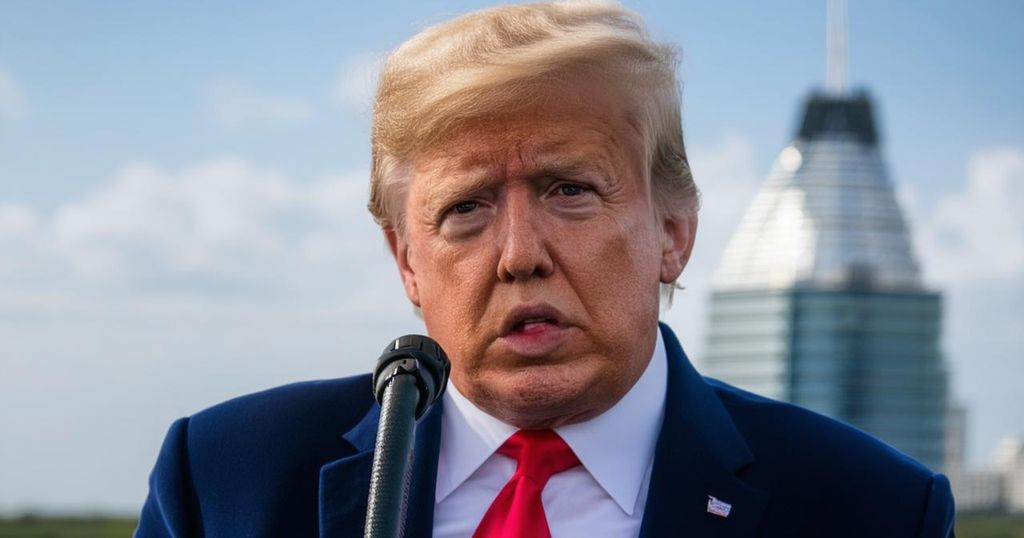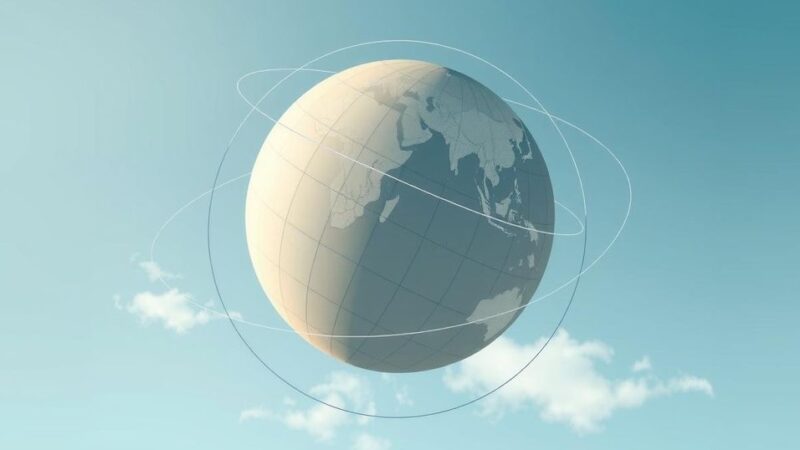As Donald Trump considers a presidential return, Saudi Arabia and the UAE are likely to align with him due to their perception of increased regional stability and enhanced diplomatic support for their ambitions. Trump’s transactional diplomacy has previously strengthened U.S.-Gulf relations, a contrast to Kamala Harris’ expected foreign policy, which may impose stricter scrutiny on military relations and engage more with Iran, raising concerns for the two Gulf states.
The Gulf States, particularly Saudi Arabia and the United Arab Emirates (UAE), are likely to support Donald Trump’s candidacy as they anticipate his return to the presidency will further their regional interests. In the context of ongoing conflicts in the Middle East, including the war in Gaza, both states prefer the stability offered by Trump over the potential diplomatic shift under Vice President Kamala Harris, the Democratic nominee. Harris is anticipated to adopt a tougher stance on conflicts such as those in Sudan and Yemen, and may engage more diplomatically with Iran, which contradicts the geopolitical goals of both Gulf states. During Trump’s previous administration, Saudi Arabia and the UAE received substantial U.S. backing, primarily due to Trump’s transactional diplomatic style, which greatly enhanced their influence in the region. Under a potential Trump presidency, both nations envision an opportunity to solidify their ambitions, including negotiating significant defense agreements and enhancing military capabilities through arms sales. In contrast, Harris’s approach suggests a return to the former Obama administration’s diplomatic strategies, which may limit U.S. security commitments and impose stricter conditions on military sales to Saudi Arabia and the UAE. Notably, during the Trump administration, Saudi Arabia pursued advancements in military and nuclear capabilities, while under Biden, arms sales have faced more scrutiny due to concerns over humanitarian issues in Yemen and regional stability. Moreover, both Gulf states are wary of Harris’s inclination to renew dialogues with Iran, a move they perceive as a potential threat to their security and regional dominance. Trump’s policies, which are viewed as more favorable to Gulf interests, led to better military ties and economic agreements, including forming partnerships with Israel through the Abraham Accords. Although Trump’s likely return may bolster the Gulf States’ positions, it may also escalate competition between Saudi Arabia and the UAE for U.S. favor, complicating diplomatic relations and influencing the broader balance of power within the region.
This article discusses the geopolitical motivations behind the Gulf States’ support for Donald Trump in the context of regional instability, particularly the ongoing war in Gaza and threats from Iran. It highlights the contrasting foreign policy approaches of Trump and Vice President Kamala Harris, emphasizing how the Gulf States believe Trump’s return to the White House would better align with their strategic objectives and enhance their military capabilities.
In summary, Saudi Arabia and the UAE are poised to favor Donald Trump’s presidential bid due to their desire for continued U.S. support and alignment with their regional ambitions. Trump’s transactional approach is viewed as a pathway to reinforce their military and economic interests, in stark contrast to the anticipated policies of Kamala Harris, which may limit U.S. commitments in the region and revive diplomatic relations with Iran, raising concerns for both nations’ security. Consequently, while Trump’s potential presidency presents opportunities for the Gulf States, it may concurrently increase rivalry between them as they vie for U.S. favor.
Original Source: foreignpolicy.com






